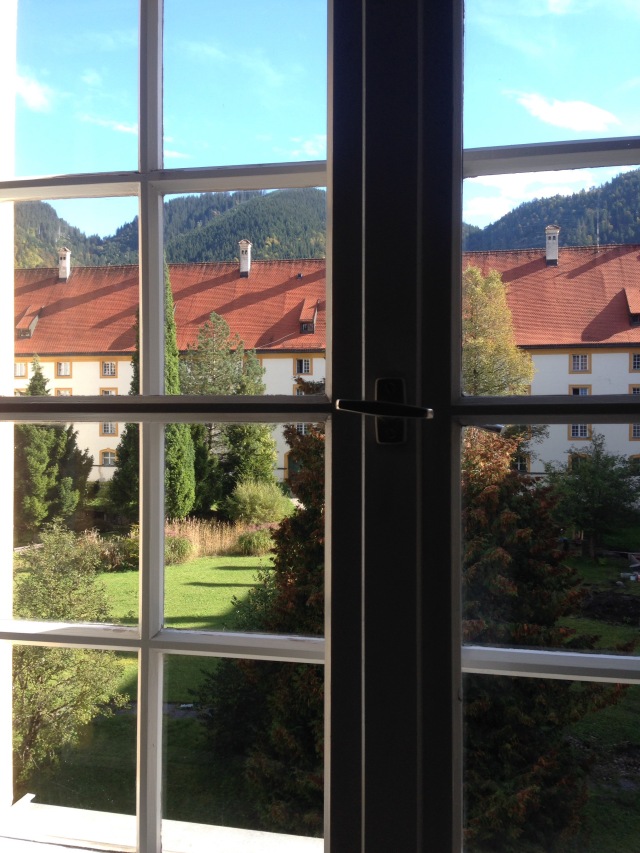Scroll for English
Wie jeder Leser von John Henry Wrights uraltem Artikel “The Origin of Plato’s Cave” (Harvard Studies in Classical Philology, 17 (1906): 131-142) weiß ich seit meiner Studentenzeit, dass viele Forscher die Höhle, welche die Szenerie des legendären Gleichnisses zu Beginn des Buches VII von Platons Republik bildet, an einer Stelle orten, die ein paar Kilometer von meinem Athener Zuhause entfernt liegt. Generationen von philosophischen Philologen haben seit der Ausgrabung der Stelle Anfang des 20. Jahrhunderts Wrights Vermutung beherzigt und propagiert.
Besucht hatte ich die Gegend oft, ohne jemals über die Höhle zu stolpern. In einem Sinn war das jetzt ein Kategorienfehler: Über eine Höhle kann man nicht stolpern und gerade von dieser Höhle kann man nur verschluckt werden – mit wahrscheinlich fatalen Folgen. Es handelt sich um ein Loch, das, an kleinen Felsvorsprüngen vorbei, zunächst einmal zehn Meter tief in die Erde führt.
Unabhängig vom Kategorienfehler ist der Wanderweg zur Höhle nicht ausgeschildert. Interessiert daran, die Höhle zu finden, war ich darüber hinaus nie. Bei Platon gehe es ja nicht um echte geknebelte Menschen unter einem Felsvorsprung einer echten Höhle, sondern um ein Gleichnis: Gleichsam Höhlenbewohnern sollen wir Menschen in unseren Meinungen gefangen sein, sollen Schatten für echte Ware und für wahre Menschen halten. Auf eine echte Höhle, die Platon im Sinn gehabt haben soll, komme es nicht an.
Aber die Jahre vergehen und die Wanderungen meiner Familienangehörigen, die immer noch in der geschichtsträchtigen Gegend wohnen, werden mehr. Die Folge: Sie entdeckten die von mir lang verschmähte Höhle und wollten sie mit mir besuchen.
Mein Resultat aus der Ortsbegehung: Wären gefesselte Leute da unten gewesen, hätten sie mich nur als Schatten wahrgenommen, aber keine Chance gehabt, mich selber, mein Original, zu sehen. Platon hat das Augenmerk auf die Höhleninsassen gelenkt, diese Ignoranten, die bequemlichkeitshalber die Schatten dem Wahren vorziehen. Für ein paar Sekunden wurde ich dagegen das Wahre hinter dem Schatten. Etwas, was kein Schatten ist, bin ich ja auch dadurch, dass ich einen Schatten werfe.
Since John Henry Wright’s stone-age paper “The Origin of Plato’s Cave” (Harvard Studies in Classical Philology, 17 (1906): 131-142) many philosophical philologists or philological philosophers identify the cave described by Plato in the opening of Republic VII with a hole in the earth, a few miles from what is now my parents’ place – and has been my place as a teenager.
The spot had been excavated some five years before Wright published his paper. Wright appears to have visited the cave and to have descended into it – archaeologists had probably temporarily bridged a gap that makes now the attempt to reach the ancient stairs extremely risky. It’s rather a hole in the earth, tells us Wright, that goes seventy feet deep and served since pre-classical times as a sanctuary.
I know the area well, mostly from excursions with parents, then with friends. But since I’ve known that there is something like a Book Seven of Plato’s Republic and that this is the place Plato most likely had in mind for the legendary simile in Book Seven, I never looked for the cave and never stumbled upon it. And this is so not only because you can only vanish in this hole before you stumble upon anything. I also considered the existence of a cave that would correspond to Plato’s description irrelevant. I mean, Plato’s simile is not about the cave itself. It’s about prisoners in a cave that is located in a way that the prisoners can’t look out (they’re held below a part of the stone that protrudes over their heads) but can see the shadows of those who are out of the cave and prefer it this way. Once released they realise that the light outside the cave is uncomfortably dazzling. You don’t need the scenery to imagine the scene!
But members of my family discovered the cave by their own and they said I had to visit it with them. After all these years I became more sympathetic towards the so-called realia of literary criticism, I suppose…
And there it was! My shadow! If you had climbed down the cave (and had survived doing so – the place is slippery) you’d have been able to see my shadow but you’d have failed to see me.
It felt comfortable to know that I’m the real thing, not a shadow of myself and I’m wondering how it happens to feel the opposite sometimes.








You must be logged in to post a comment.